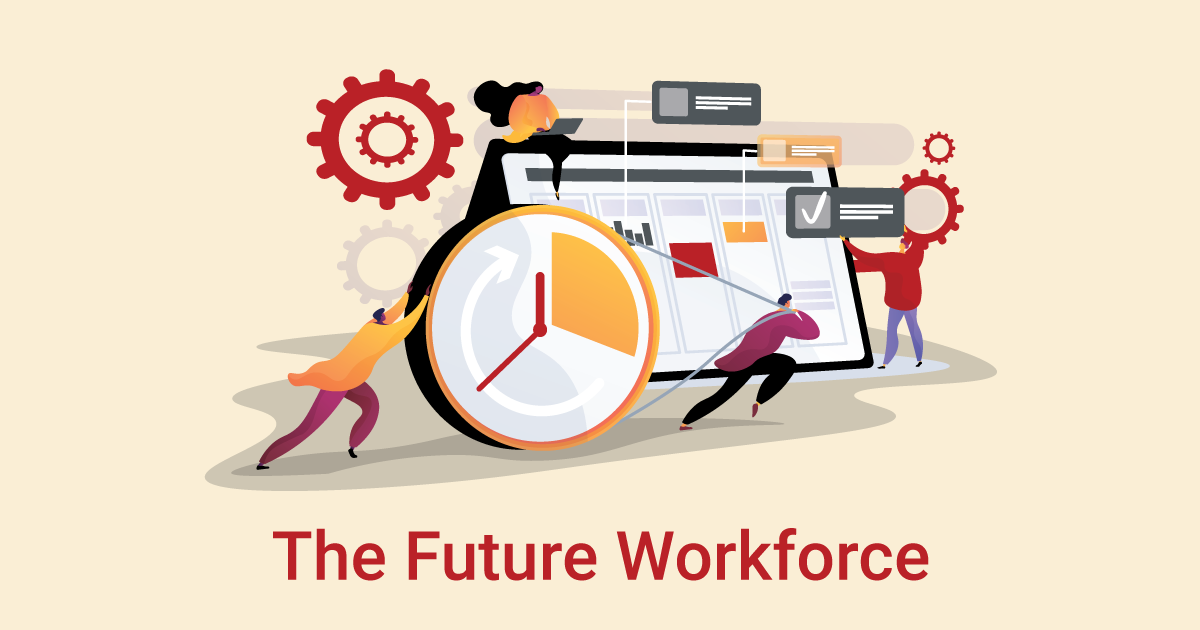Table of Contents
Strategic Workforce Planning
With the Covid-19 pandemic and the switch to remote working, a new generation of employees has come with its own set of awesome qualities, as well as challenges for human resource managers. For starters, rigid rules seem to put them off really fast and as a growing trend, many will not stick around for too long if they feel the working environment is not right. A report by PWC showed that the millennial workforce will make up to 50% of the workforce by 2020.
The corona pandemic has made this projection happen faster than expected. This means that it is important to understand what this group wants because this demographic makes up what is now referred to as the workforce of the future. The next couple of years are likely to see a rise in the number of millennials running corporations and government departments.
For you to attract and keep this demographic on board, you will need to understand and start ensuring that you can create the right environments for this group. So, how do you do this?
Begin Phasing Out Rigid Systems
That 8-5 rule may have been great for people from previous generations and the pre-corona workforce, but it is no longer the case. Millennials value work-life balance and to make this happen, technology has come to their aid. This incredibly techno-savvy demographic has grown up with technology all around and to its credit, the millennial generation has also been involved in creating new technologies to ease work.
Make Schedules More Flexible
To combine flexibility and a healthy work-life balance, millennials prefer flexible working environments which allow them to work from anywhere as long as they deliver on their tasks. In fact, a study by BrighterMonday indicated that 63.3% of millennials prefer to hold jobs that allow them to have flexibility and work-life balance. What this means for HR departments is that face-time will now have to be replaced with value addition as opposed to the number of hours that a person clocks in. Remote working can also be viewed as a company’s way of cutting costs on space and utilities within the workspace.
Give Regular and Timely Feedback
Appraisals and performance reviews have been a common feature in many organisations for decades. Previously, employees looked forward to quarterly or annual performance reviews to know about their progress and performance. However, millennials will not wait that long to get feedback on whether they are on track and what they need to improve on. Some companies have realised this and implemented shorter review periods resulting in better results. Some managers have also taken it upon themselves to routinely give feedback to their juniors and this creates a good working relationship.

Offer Competitive Perks
Good salaries definitely matter and this is at the top of the list of things that the future workforce values. However, this is not enough. Things like free snacks and lunch, flexible working hours, career development opportunities, opportunities, and even training nap time matter to millennials. Additionally, things like working in silos are very unattractive to millennials who cite working in collaborative teams as an important aspect of the workplace. Therefore, HR departments need to be creative with the perks they offer this demographic. Good salaries are appreciated but they are not enough.
Offer Growth Opportunities
The future workforce does not have the patience of past generations and has been heavily criticised for this. Millennials want to rise up the corporate ladder faster than people from previous generations, with a PWC report showing that 52% of this generation cite this as an important attraction to a prospective employer. Therefore, if you want to attract the future workforce, you have to create and facilitate growth, otherwise, you will not be able to keep talent on board.
Jobs that Give them a Purpose
Millennials don’t just want to work for the perks and the bottom line. They want jobs that give them meaning and a purpose. Jobs that are aligned with their values and missions in life. The BrighterMonday report showed that 86% of this generation would consider leaving a job that no longer matched their values.
The fine line between a person’s work and life is almost non-existent and the days of ‘leaving’ one’s life at the door are gone. The future workforce views jobs as an extension of life. Therefore, corporate bureaucracy and obscure policies are a complete turn off for people who are looking for jobs that mean more than a pay cheque at the end of the month.
Build a Strong Employer Brand
For most millennials, employers are not simply brands that give them jobs. They have an attachment to brands and this means that most would like to work for brands that they like, as consumers. Moreover, if a brand has a bad reputation as an employer or amongst consumers, then most millennials will give such employers a wide berth. Thus, to attract and keep the right talent on board, you need to develop a strong employer brand.
Hire the Right Candidates
The future workforce is definitely radically different from that of previous generations. This is a demographic that desires to hold meaningful jobs, have flexible working schedules, have a good work-life balance, and have rapid career-growth opportunities, among other needs. Therefore, to attract and keep this workforce, HR departments need to change radically so as to accommodate the new demands of this talented workforce.





